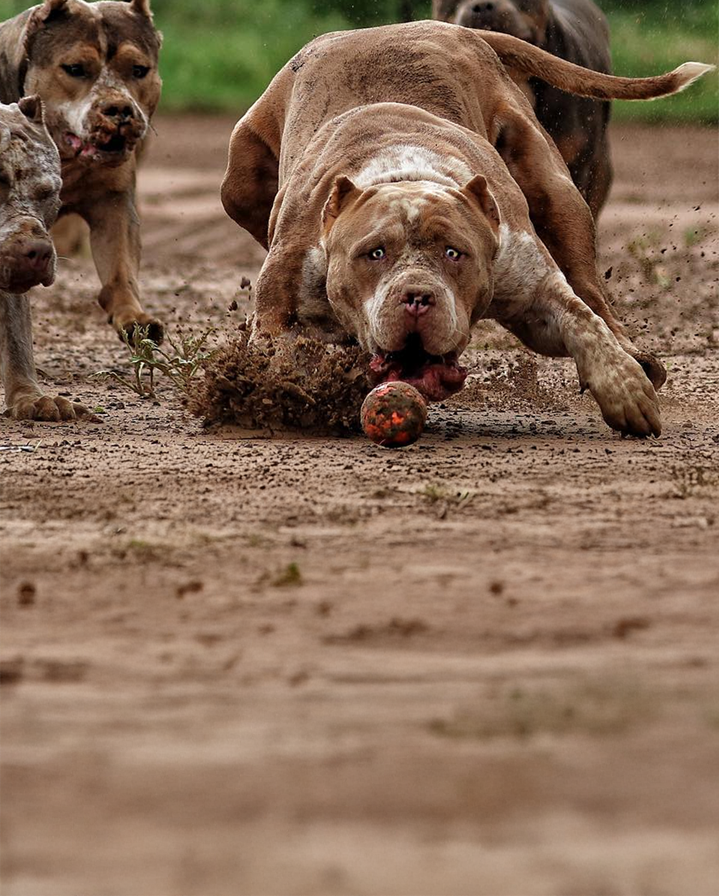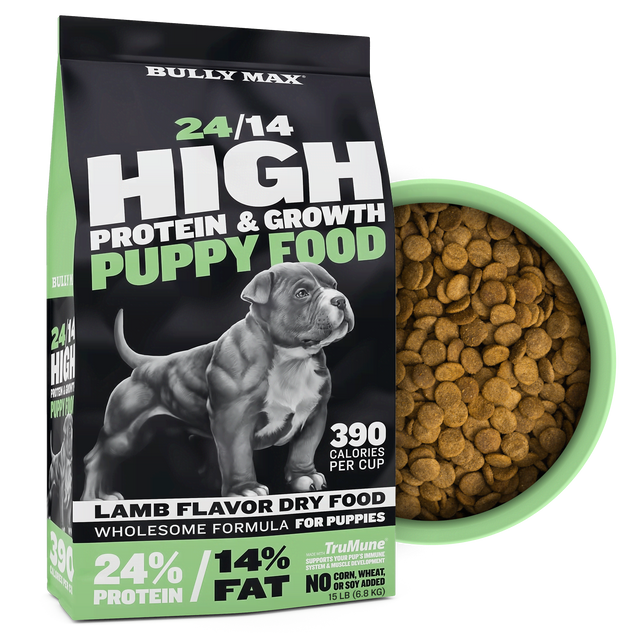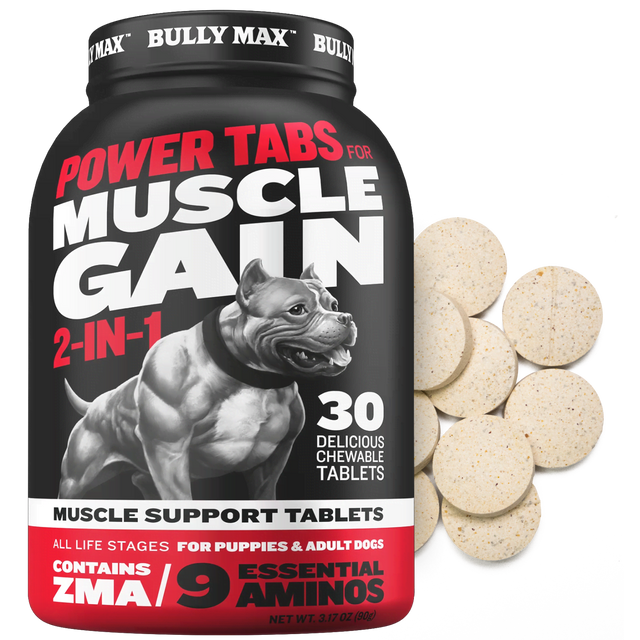5 Must Read Tips: How to Pick a Puppy That's Right for You
Thinking about getting a puppy?
Adding a puppy to your family can be one of the happiest things you ever do. A good dog can bring so much joy to a household.
And of course, we love ALL dogs here. But we also recognize that some dogs will be a better fit for different people.
That’s why we put together this guide. It will teach you some of the most important things to consider when you’re considering a puppy.
Of course, no evaluation method is ever foolproof. But it certainly can be helpful to know a handful of specific things to look for when you’re picking out a puppy.
Read on to get our best tips to help you pick the perfect puppy for you and your family.
First, Find a Reputable Breeder
This might be the single most important tip in this entire blog post:
Go to a reputable breeder!
A good breeder will have a whole litter of great pups to choose from. And if they know what they’re doing, then you can be confident that you will be getting a high-quality dog with a better chance of being healthy and loving for years to come.
You’ll also be doing your part to encourage better breeding by supporting breeders who are doing their due diligence to breed responsibly.
Ask for references and research the breeder extensively. A few breeders we recommend are Manmade Kennels, Carolina Bully Farms, and The Incredibullz.
What’s the Best Age to Pick a Puppy?
You can pick a puppy anytime, but we’ve found that 8 weeks old is a good time to choose a puppy. That’s because by 8 weeks, your puppy will probably be developed enough that you’ll be able to confidently know what kind of dog you’d getting.
If you choose a puppy younger than 8 weeks, there’s a chance that it hasn’t matured yet and its personality or physical traits might still change.
The 5 Most Important Things to Evaluate Your Puppy On
Now let’s get into the details. Generally speaking there are 5 things we recommend looking at when evaluating a puppy.
Temperament
When we talk about your dog’s temperament, think of it like the report card you might get in kindergarten. Essentially you’re trying to discover if the dog “plays nice with others” or not.
And this includes how the puppy interacts both with humans and with other dogs.
First, observe how the puppy interacts with the other pups from the litter. Do they have a dominant or docile personality? Are they generally agreeable or do they have a tendency to become aggressive?
Watch out for puppies that show signs of aggressive “resource guarding,” such as trying to hoard food or toys for themselves.
Then watch how the puppies associate with people. Do they seem to like people? Does the puppy come to you if you call it?
Puppies are generally curious creatures and should enjoy meeting you. If the puppy seems afraid of people or even hostile toward them, that could be a warning sign for behavior issues later in life.
Overall Health
Take a careful look at the puppy’s appearance. Do they look healthy? Here are a few things to look for:
- Their coat should be shiny, without flakes or bald spots.
- Look at their gait. It’s normal for pups to be clumsy, but they shouldn’t limp or favor one leg over another.
- Their legs should face forward and not be excessively rotated.
- Bright, clear eyes.
- Clean teeth and gums.
- They should have a healthy appetite.
- Check the skin on their belly—it shouldn’t have any redness or inflammation.
- They should have a good energy level with natural curiosity. (At the same time, it is natural and normal for puppies to nap a lot.)
- They shouldn’t be scratching themselves excessively.
Finally, keep in mind that some breeds are predisposed to certain health conditions. If that’s the case, ask the breeder about it. Ideally, they will have a certificate showing that the parents have tested negative for those common disorders.
Structurally Correct
Once a pup reaches 8 weeks old, you should be able to take a look at the dog and get a pretty good idea of how it is going to look. At this point you should be able to see any structural deformities that could develop into problems later in life.
This is a helpful post with more details on some of the structural qualities to look for in a dog.
Working Drive and Ability
If you’re looking for a dog to perform work or participate in sports or other active events, you’ll want to evaluate the dog’s drive. Do they have a lot of energy, strength, and speed?
Keep in mind that “arousal” and “drive” are not necessarily the same thing. Drive refers to a focused commitment to a specific goal, while arousal could just mean a dog that is easily excitable. Generally speaking, you want a dog that can stay focused on the task at hand.
Spend some time playing with the puppy to get a good idea of this—especially if you’re looking for a dog for some specific physical task or sport.
Personality
Take some time to observe the puppy’s behavior. Even among puppies from the same litter, you’ll always find differences in personality. Some will be alpha dogs with a dominant personality, while others will be quieter and more docile.
There’s no one personality that is better than another. This is a chance to think about your own personality and what kind of dog will be the best fit for your household.
3 More Factors to Keep in Mind
Here are a few more things to consider when meeting your puppy.
Make Sure to Meet the Parents
If at all possible, you should also meet the puppy’s parents. This can give you a really good idea of what kind of dog your puppy will grow up to be.
When you meet the parents, go through the same steps you did for the puppy itself. Evaluate the parents to see if they seem healthy, happy, and friendly.
Inspect How the Pups Are Being Kept
Take a little time to inspect the puppy’s environment. Are they kept in a yard, a pen, or indoors? Is the area clean, without any persistent smells, garbage, or clutter?
It might not seem important, but the puppy’s environment can give you a clue into how much effort the breeder is putting into raising them. A messy, negative, or even unsafe environment could be a red flag that something is not right with this breeder.
What Do You Want the Puppy For?
Finally, don’t lose sight of the real reason you want a puppy. Someone who’s looking for a show dog will have different expectations than someone who wants a working dog, which will be different from someone looking for a pet.
If your new dog is going to be a pet, it’s definitely a good idea to talk with your spouse or other family members to make sure everyone is on-board with what kind of dog you will prefer. This pup is going to be with your family for years, so take the time to make sure it will really fit in at your home.
What NOT to Base Your Decision On
Now that you have some things to look for, here are 2 things that should NOT be your deciding factor. These are 2 common mistakes that people make when choosing a puppy.
Don’t Choose a Puppy Just Because It Approaches You First
A lot of people will think that the first puppy to run up to you is somehow “choosing you.” It’s a cute thought, but in reality it doesn’t work that way. If a certain puppy happens to run up to you when you arrive, it might just be because that particular puppy happens to be more awake while its brothers and sisters are asleep or in a more restful mood. If you had arrived an hour earlier or later, it’s likely that a different puppy would have approached you first.
Don’t Choose a Puppy Based on its Color
It’s OK to have a color preference, but don’t let that be your deciding factor. The other things we’ve mentioned in this post are much more important than just the color. Remember, this is going to become a living, breathing member of your family…it’s not a piece of furniture to be chosen based on a color scheme.
A Few Helpful Tools
There are some evaluation tools, such as the Volhard Puppy Aptitude Test, that are designed to help you evaluate puppies. These can be helpful tools, as long as you understand that it’s just a test and it can’t tell you everything. Don’t pick a puppy just because of an aptitude test. But that said, a test can help supplement your decision in choosing the best puppy for you.
Give Them A Loving Home
At the end of the day, your puppy’s natural health and temperament are important—but the environment you provide for them is equally important. No matter what kind of puppy you choose, make sure to give them a safe, happy, healthy home. You’ll be rewarded with a loving companion who will fill your heart for years to come.









1 comment
Thanks for helping me understand that we should not base all of our decision according to the color of the puppy, because they are more than that. I will keep that in mind especially when I plan to look for American bully puppies for sale here in our location. And I think that it is a good idea to observe a litter of puppies before we choose one from their group, so we can find those with the characteristics that would be perfect for our family dynamics. https://southeastbullykennels.com/bully-puppies-for-sale